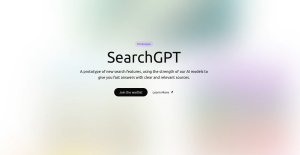Sam Altman's interview after GPT-4o release
Here are some key points of the interview.
Advancements in GPT-4o
- Improved understanding of context, including nuances, in long conversations.
- Generates more natural responses, reducing nonsensical or irrelevant outputs.
- It's good at handling complex tasks, which makes it useful in professional and technical applications.
- Fast and efficient, ideal for real-time applications.
- Improved learning: learn from new data and perform better without retraining.
- GPT-4o can process and generate text, images, audio, and video.
- Improved user interface for easier interaction and accessibility.
Ethical Considerations
- Bias Mitigation: reducing the AI's biases to ensure fair outcomes.
- Better detection and filtering mechanisms to prevent the spread of misinformation.
- Strengthening privacy protocols to protect user data during interactions with AI.
Future Predictions and long term vision
- AI will help us with everyday tasks and decisions.
- Significant impacts on healthcare (e.g., diagnostic support), education, and customer service (e.g., automated support).
- Global challenges: using AI to solve big problems like climate change, healthcare, and education.
- Focusing on sustainable growth with AI.
Human-AI Collaboration and real-world applications
- AI is designed to work alongside humans, enabling more efficient workflows, making them more efficient rather than replacing them.
- Healthcare: AI helps diagnose and treat patients better.
- Education: provides personalized tutoring and learning resources.
- Customer service: Chatbots handle complex queries efficiently.
Regulations and society
- It is important to create rules for AI development. These rules should ensure that AI development is safe and ethical.
- The job market is changing. New jobs are being created, but some are being lost.
- Open source contributions: encouraging people to contribute to AI tools and share innovations.
- Transparency: making AI development and decision-making processes open.




